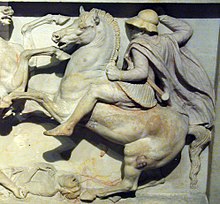And here is something from the old place:
Debate aspects of historical knowledge that are open to interpretation

Debate aspects of historical knowledge that are open to interpretation


Penner wrote:So, I just heard about this and it looks like Henry VIII isn't liked by authored historians:
http://www.theguardian.com/books/2015/s ... in-historyKing John I may forever be known as a Bad King following that seminal history textbook 1066 and All That, but according to history authors, it is Henry VIII who should bear the title of the worst monarch in history.
More than 60 writers were surveyed by the Historical Writers Association (HWA), with Henry VIII taking 20% of the vote to find the worst monarch and criticised for a wide range of crimes: he was “obsessive”, “syphilitic” and a “self-indulgent wife murderer and tyrant”, according to respondents.
Robert Wilton, the author of The Spider of Sarajevo, called the Tudor king “a gross man-child, wilfully and capriciously dangerous to everything around him including the country”, adding that psychologically, Henry “barely made it out of infancy, let alone adolescence, and ruled with little more policy than petulant self-gratification”.
Edward VIII was named the second worst, with 14% of the vote, with John I and Charles I joint third, with 8%.






I just read this article on IO9 and it pointed out that there were 7 major crisis events, that could've started WWI.
http://io9.com/7-ways-that-world-war-i- ... 1725104055The First World War was instigated by the assassination of Archduke Franz Ferdinand, but it’s no small miracle that a general European war didn’t happen earlier. Here are 7 international crises in the years before 1914 that could have started a global-scale conflict.
For most Europeans, the century leading up to the First World War was peaceful and prosperous. After the fall of Napoleonic France, European people busied themselves with science, art, and industry. And when war threatened, the Concert of Europe—with its emphasis on a power balances and diplomacy—managed to avert war time and time again.
But things began to unravel after the Franco-Prussian war of 1870-71. The international dynamic changed considerably once the new German Empire asserted itself in central Europe, while Austria-Hungary and the Ottoman Empire struggled to retain prominence. What’s more, Bismarckian diplomacy was replaced by a more assertive German leadership, one demanding that the new nation-state get its own “place in the sun.”
Starting in 1875, Europe began to experience a series of crises, each threatening to uproot the longstanding peace. Here are the most serious of these incidents, listed chronologically.


o, this is something that Dan brings up in both his CS and his HH shows and I was wondering if anybody supports either one and why. Personally, I think that the truth is a little bit of both. That history can be modeled by a great man and/or a great movement. Both seems to be major factors that very few people have power over. Overall, I do think that the Great Movement theory is much stronger than the Great Man Theory because great movements seems to happen more often than great men.

I think that is a good summation of it. Both clearly influence events, and great men often start great movements and vice versa.Penner wrote:So, this is something that Dan brings up in both his CS and his HH shows and I was wondering if anybody supports either one and why. Personally, I think that the truth is a little bit of both. That history can be modeled by a great man and/or a great movement. Both seems to be major factors that very few people have power over. Overall, I do think that the Great Movement theory is much stronger than the Great Man Theory because great movements seems to happen more often than great men.